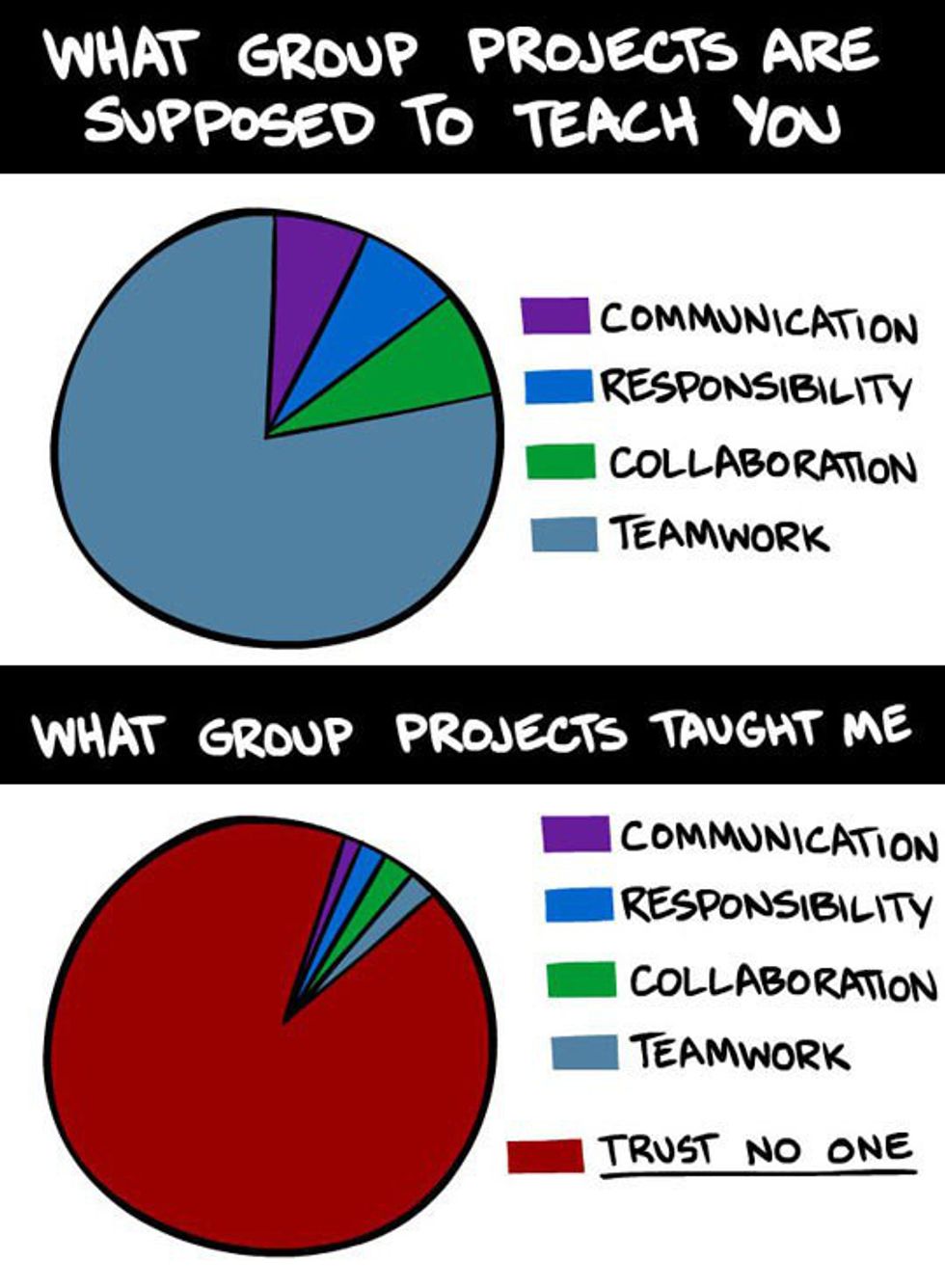We are halfway through the semester and feeling it. Everyone’s got to learn how to work in a team, but it’s actually kind of a pain to do it. This is when professors get wise and decide to hit us with group projects. I was #blessed enough this semester to have not one but two classes that are majority group projects! In fact, one of the classes is just a group project! Which makes me your new BFF and source of sanity in the clustered mess that is a group project. I'll also dive a little deeper into how to actually perform well on these projects instead of just regurgitating "stay positive!" because I promise, this forced family is really not that bad.

1. Get your life in check
Go to Target, buy a planner, some Post-it notes and highlighters or at least crack open the calendar app on your phone. Keep a copy of the syllabus handy, take a picture and email it to yourself. You will be busy, you will need to create deadlines and most importantly, you will need to remember all of this.
2. Set deadlines and meetings.
Coordinate work schedules and class schedules. Does everyone have obligations elsewhere? Use this to set optimal times to meet, to catch up and brainstorm, or at the very least communicate.
3. Utilize every aspect that technology has to offer.
Don't fear Skype, for it is not just the next-best-thing from actual human interaction, but also another solid way to hold everyone accountable for being present at meetings. Your tire is flat? You have to take your dog to the vet? No worries! Bust open Skype and contribute your ideas and tasks to your group anyway. No excuses. Don't be that guy.
Google Docs is your best friend. Collaborate with your team members on editing, formatting and sources. You will find that each of you can contribute awesome pieces of information about your project to cherry-pick and strengthen your individual part of the assignment. This is also a good way to offer feedback and make changes if you can't physically meet face-to-face.
4. Communication is everything.
Behold the power of the group text! Sign up for GroupMe, exchange phone numbers, share email addresses and keep in constant contact. A simple touchstone of activity is essential to holding each group member accountable and giving everyone the peace of mind so you can remember, Hey. I’m not alone in this. And at least I’m not the only one who has no clue WTF this lecture is about.

5. Be open-minded.
As much as you may be tempted to tell the slacker in your group "Yo, turning our presentation into a rap battle is actually a terrible idea," try bouncing your own ideas off each group member and molding your final product together. Compromise is key in so many aspects of life and the sooner you embrace this, the smoother your project will go.
6. Open yourself up to constructive criticism.
Your ideas actually aren't always the greatest, buttercup. It sucks, especially if you have tendencies to take charge of projects. But another secret benefit of these group projects is having your ideas shut down. Being told "no" allows you the opportunity to change your ideas, alter your original pattern of thinking and push your boundaries to escape your comfort zone. Sometimes the best ideas develop from challenge and strain, I swear.
7. Utilize your resources.
At last, you blended all of these steps together into a beautiful, finished project. Your team pored over the final edit hundreds of times in Google Docs, with Skype sessions stretching into the wee hours of the morning and your phone buzzing at all hours of the day.
But you’re still not done.
Take your masterpiece to a professor, your school’s writing center, a tutor, a TA, your mom -- pretty much any fresh set of eyes. This will help eliminate the redundancies that can naturally sneak in when consistently touching up a finished product.

The beauty of group projects truly is the team: the fresh ideas, the differing views, the varying approaches and all of these things will strengthen your character, patience and collaborative skills, I promise.
Even if the struggle is real.





















